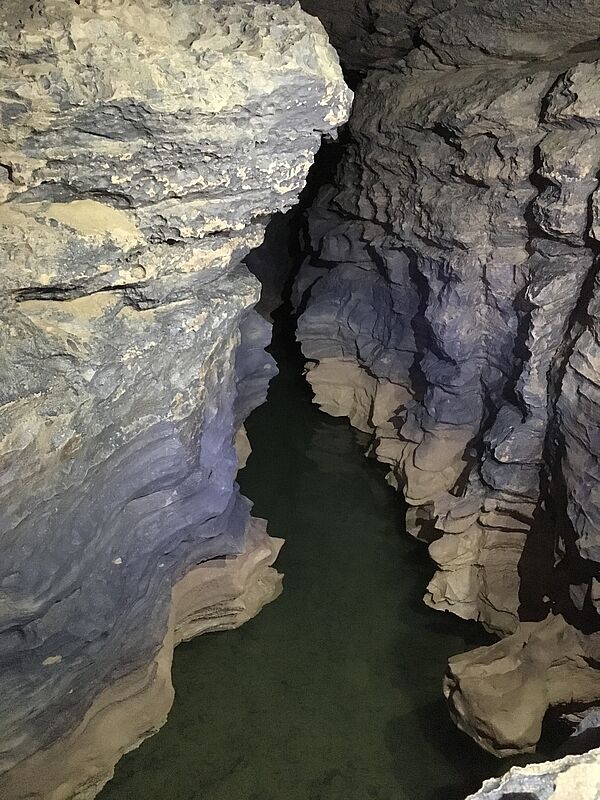Karst aquifers are critical groundwater resources impacted by land-use and global climate change. These reservoirs are known for being complex mediums, generally not accessible, presenting a highly heterogeneous distribution of permeability (conduits, fractures, faults, rock matrix). For this reason, their functioning is still poorly understood. We propose to address this problematic by combining approaches from hydrogeology, geophysics and climatology. We present ongoing work of a karst aquifer in Jura aiming at better characterizing its response during extreme meteorological events (flash floods, drought) at the scale of a catchment basin (Fourbanne, Doubs).


